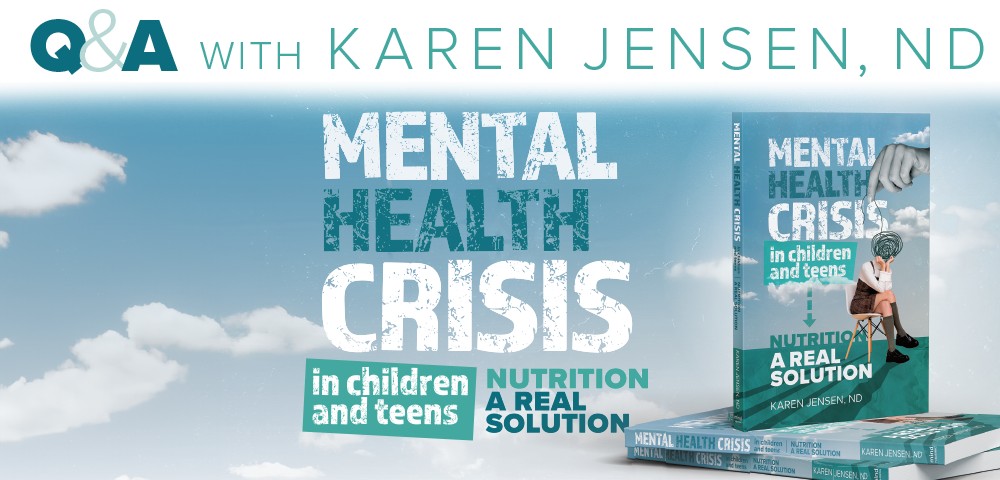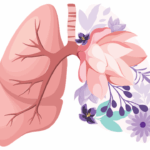
Raising awareness about the mental health challenges our kids are facing in today’s world is crucial.
Recently, Women’s Voice had the opportunity to talk with Karen Jensen, ND, to find out more about her new book Mental Health Crisis in Children and Teens.
What inspired your new book?
My goal is to bring awareness to parents, teachers, caregivers, and professionals about the alarming increase in mental health disorders in kids and teens and to provide information about the less recognized causes as well as nutritional and lifestyle support.
Many doctors are hesitant to prescribe medication to children or teens, but the lack of availability of other therapies, such as counseling or cognitive behavioral therapy, leaves doctors with few other options.
What are some of the less recognized contributing factors to mental health disorders in these age groups?
Highly processed foods lacking in nutrients interfere with brain development and can impair the ability to think, learn, and remember. U.S. kids consume 67% of their calories from
ultra-processed junk food, and Canadian kids consume one-third of their total calories from junk food.
As well, children and teens absorb more electromagnetic radiation, making them much more vulnerable to the damaging effects. Their psychological well-being starts to deteriorate after an average of one hour of screen viewing daily. The effects are most pronounced in teens aged 14–17 years – more hours equal more risk, including less curiosity, less self-control, more distractibility, and difficulty making friends.
Social media adds to self-esteem issues. If teens internalize what media portrays as the “social or image norms,” they use these messages as a basis for self-evaluation. This can increase the risk of depression and anxiety.
Prescription medication is the most common recommendation for many of these disorders. What are your thoughts or concerns?
The number of young people aged 12–25 years receiving antidepressants has been rapidly increasing since March 2020, and the dispensing rate rose by nearly 64%. Based on these rates, and with the ever-growing demands on doctors, my concern is there will not be sufficient monitoring.
Worse still, the Cochrane review, considered the gold standard in medicine, found that, on average, antidepressants led to only small improvements in depression in children aged 6–18 years.
Are there any other alarming trends that concern you regarding the increase in mental health disorders?
Yes! Teens are also turning to drugs and alcohol to ease stress, anxiety, and depression and to help them sleep. The study found that 73% reported using drugs and alcohol to “feel mellow, calm, or relaxed.”
What can parents and caregivers do to support kids and teens?
Poor diets are strongly associated with mood disorders. Healthy foods like fresh vegetables, fruits, and high-quality protein nourish the brain and body. If the main fuel source is “low premium,” like refined foods, the body and brain will not function very well for long.
But there is good news. Nutritional psychiatry, the practice of using food and supplements for many mental health disorders, is rapidly gaining ground.
Also, it is very important for kids to have “quiet time” or simply relax. Exercise and time spent doing family activities are very important.
What is your take-home message?
There is hope. Raising awareness about the mental health challenges our kids are facing in today’s world is crucial. In addition, understanding the importance of parent-child relationships, prioritizing a nutritious diet and lifestyle, and acknowledging the potential benefits of natural supplements can significantly contribute to the prevention and treatment of various mental health disorders.













